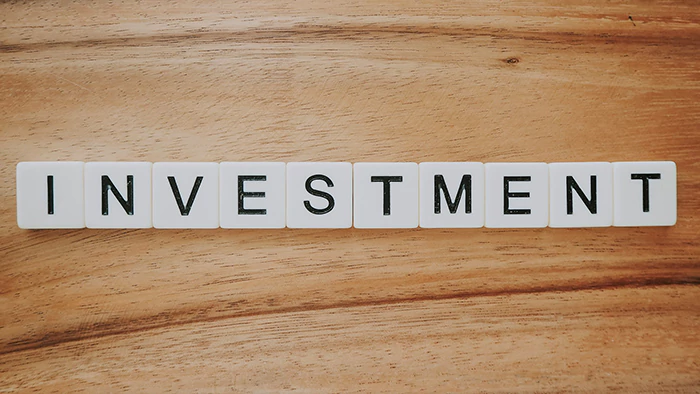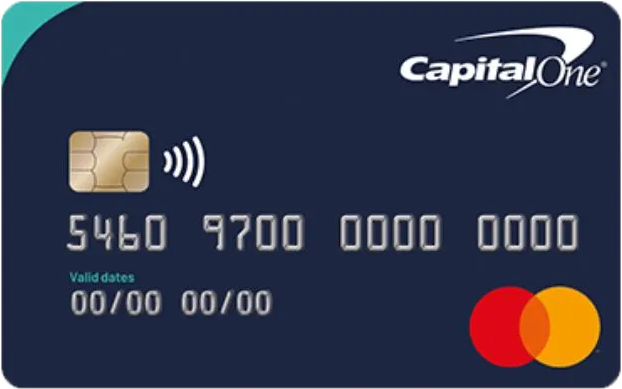In an era where traditional savings accounts often struggle to outpace inflation, investing has become an increasingly appealing avenue for individuals looking to grow their wealth. In the UK, the average interest rate for instant savings accounts is around 2.46% which means that if you put £100 into a savings account for a year, you would earn £2.46 as interest. For beginners in the UK, understanding the basics of investing and choosing the right platform can seem overwhelming and confusing. This detailed guide aims to breakdown the world of investments, outlining key concepts and highlighting the best platforms for those just starting their financial journey.
What Does it Mean to Invest?
At its core, investing means committing money or capital to an endeavour with the expectation of getting an additional income or profit. Instead of simply letting your money sit idle in a bank account, you’re putting it to work, aiming for it to grow over time. This growth can come from various sources, such as an increase in the value of the asset you’ve bought (capital appreciation), or from regular payments like dividends or interest.
It’s crucial to understand that investing involves risk. The risk you take is simply based on how hard you want your money to work and the harder you put your money to work, the higher the risk which means possible higher returns. Unlike savings accounts where your principal is generally protected and interest rates are predetermined (though variable), the value of investments can go down as well as up. You could potentially get back less than you invested. Therefore, investing is typically recommended for medium to long-term financial goals (generally 5 years or more) to allow time for market fluctuations to smooth out and for your investments to recover from any dips which is most certainly guaranteed.
Investing vs. Saving: What’s the Difference?
While often used interchangeably, saving and investing serve different financial purposes and carry different risk profiles.
| Feature | Saving | Investing |
|---|---|---|
| Purpose | Short-term goals, emergency fund, low-risk. | Medium to long-term goals (e.g., retirement, house deposit, education for children). |
| Time Horizon | Typically less than 5 years. | Typically 5 years or more. |
| Risk | Very low to no risk; principal is usually protected by the FSCS. | Higher risk; value can go down as well as up. |
| Return Potential | Lower returns, often barely keeping pace with inflation. | Higher potential returns, aims to beat inflation. |
| Accessibility | Generally easy access to funds. | Funds may be less liquid; early withdrawal can incur penalties or losses. |
| Inflation Impact | Purchasing power can be eroded by inflation. | Aims to generate returns that outpace inflation. |
Savings accounts are ideal for your emergency fund (3-6 months’ worth of essential expenses), short-term goals like a holiday or a new car, or any money you might need access to quickly. They offer security and predictability.
Investing, on the other hand, is for goals further down the line. It’s about taking on a calculated amount of risk for the potential of greater returns over time, helping your money work harder for you.
Different Types of Investments in the UK for Beginners
For beginners in the UK, a good starting point often involves understanding a few core investment types:
- Stocks (or Shares): When you buy a stock, you’re buying a small ownership stake in a company. If the company performs well, its stock price may rise, and you can sell your shares for a profit. Some companies also pay out a portion of their profits to shareholders as “dividends.” Stocks can be volatile in the short term but offer significant growth potential over the long term depending on the company and its performance.
- Funds (Mutual Funds & Exchange-Traded Funds – ETFs):
- Mutual Funds: These pool money from many investors to buy a diversified portfolio of stocks, bonds, or other assets, managed by a professional fund manager. They are often categorized by their investment objective (e.g., growth, income) and risk level.
- Exchange-Traded Funds (ETFs): Like mutual funds, ETFs also hold a basket of assets. However, they trade on stock exchanges like individual shares, meaning their price can fluctuate throughout the day. Many ETFs are “tracker” funds, aiming to passively track a specific market index (e.g., FTSE 100, S&P 500). ETFs are generally known for their low costs and diversification.
Why are funds good for beginners? They offer instant diversification, meaning your money is spread across many different investments, reducing the risk compared to putting all your money into one or two individual stocks. They also benefit from professional management (for actively managed funds) or simply track a broad market (for passive ETFs/tracker funds). So simply put, funds are good for beginners as you’d not be putting all your eggs in one basket.
- Bonds: When you buy a bond, you’re essentially lending money to a government or a company. In return, they promise to pay you regular interest payments and return your original investment at a specified maturity date. Bonds are generally considered less risky than stocks but offer lower potential returns.
- Investment Trusts: These are publicly listed companies that invest in other companies. Like funds, they offer diversification, but they are “closed-ended,” meaning a fixed number of shares are issued, and their price can be influenced by supply and demand in addition to the value of their underlying assets.
- Cash ISAs: While technically a savings product, a Cash ISA offers tax-free interest on your savings up to an annual limit. It’s a low-risk option for shorter-term goals or your emergency fund.
- Stocks and Shares ISAs: This is a tax-efficient wrapper that allows you to invest in a wide range of assets (stocks, funds, ETFs, bonds) without paying UK income tax or capital gains tax on your profits, up to an annual allowance (currently £20,000 for the 2024-2025 tax year). This is often the first port of call for beginners due to the tax benefits.
- Pensions (e.g., SIPP – Self-Invested Personal Pension): A pension is a long-term savings plan with significant tax benefits, designed to provide income in retirement. With a SIPP, you have control over how your pension pot is invested. Contributions often receive tax relief from the government, and the investments grow free of UK income tax and capital gains tax. However, money held in a pension is typically locked away until a certain age (currently 55, rising to 57 from 6th April 2028).
The Power of Compounding
Albert Einstein reportedly called compounding the “eighth wonder of the world,” and for good reason. Compounding is the process where the returns you earn on your initial investment also start earning returns themselves. In essence, it’s “interest on interest” or “returns on returns.”
Here’s how it works:
Imagine you invest £1,000 and earn a 5% return in the first year. Your investment grows to £1,050.
In the second year, if you again earn 5%, you don’t just earn 5% on your original £1,000. You earn 5% on the new total of £1,050. So, your investment grows by £52.50 (£1,050 * 0.05), bringing your total to £1,102.50.
This seemingly small difference becomes incredibly powerful over longer periods. The longer your money is invested, the more time it has to compound, leading to exponential growth.
Example:
If you invest £100 per month for 30 years with an average annual return of 7%, thanks to compounding, you could accumulate significantly more than just your initial contributions.
- Total contributions: £100/month * 12 months/year * 30 years = £36,000
- Estimated total value with compounding: Potentially over £120,000 (depending on exact returns and charges).
This highlights the importance of:
- Starting early: The more time your money has to compound, the greater the potential growth.
- Reinvesting returns: If you receive dividends or interest, reinvesting them back into your portfolio further supercharges the compounding effect.
Different Investment Platforms in the UK for Beginners
The UK market offers a diverse range of investment platforms, each with its own strengths, fee structures, and target audience. For beginners, ease of use, educational resources, low minimum investments, and competitive fees are often key considerations. Platforms generally fall into two categories:
- Robo-Advisors: These platforms use algorithms to build and manage diversified portfolios based on your risk tolerance and financial goals. They are often low-cost, easy to set up, and require minimal ongoing effort from the investor. They typically offer ready-made portfolios.
- DIY (Do-It-Yourself) Platforms: These platforms give you direct control over your investment choices. You decide what to buy and sell. They offer a wider range of investment options but require more research and engagement from the investor.
Here are some of the best investment platforms for beginners in the UK:
1. Moneybox
👉 Best For:
Micro-investing, automated savings, complete beginners.
👉 How it works:
Moneybox is known for its “round-ups” feature, where spare change from your everyday purchases is rounded up to the nearest pound and invested. You can also set up regular deposits or lump sums. They offer a choice of three diversified tracker funds (Cautious, Balanced, Adventurous).
👉 Account types:
Stocks & Shares ISA, General Investment Account, Lifetime ISA, Personal Pension.
👉 Fees:
Platform fee of 0.45% per year (on portfolios under £100,000), plus fund fees (typically 0.12% – 0.30%) and a subscription fee for some premium features. For balances under £2,000, there’s a £1 monthly subscription fee, otherwise free.
👉 Minimum Investment:
From £1.
👉 Pros
- Very user-friendly app
- Engaging features like round-ups
- Low minimum investment
- Good for building a saving habit
👉 Cons
- Can be more expensive than some DIY platforms for larger portfolios
- Limited investment choice (ready-made portfolios)
2. Vanguard Investor
👉 Best For:
Low-cost index fund investing, long-term investors, simplicity.
👉 How it works:
Vanguard is famous for popularising low-cost index funds and ETFs. Their platform allows you to invest directly into their own range of broadly diversified funds, including their popular LifeStrategy funds (which are ready-made portfolios with different risk levels) and Target Retirement Funds.
👉 Account types:
Stocks & Shares ISA, General Investment Account, Junior ISA, Personal Pension (SIPP).
👉 Fees:
A low annual account fee of 0.15% (capped at £375 per year, meaning for large portfolios over £250,000, the percentage fee reduces) and £4 for self-managed accounts. Plus, fund fees (typically very low, e.g., 0.06% – 0.79%).
👉 Minimum Investment:
£500 lump sum or £100 per month.
👉 Pros
- Extremely low fees
- Wide range of high-quality index funds
- Simple platform
- Excellent for passive investing
👉 Cons
- Limited investment choice (only Vanguard’s own funds)
- Minimal guidance for active stock picking.
3. AJ Bell Dodl
👉 Best For:
Low-cost DIY investing with a simplified approach, new investors wanting some control.
👉 How it works:
Dodl is AJ Bell’s streamlined app designed for beginners. It offers a curated selection of ready-made portfolios, themed investments, and a limited number of popular UK and US shares. It’s built to “take the fear out of investing.”
👉 Account types:
Stocks & Shares ISA, Lifetime ISA, Junior ISA, Pension (SIPP), General Investment Account.
👉 Fees:
A very competitive platform fee of 0.15% per year (no minimum fee), plus fund charges. Share trading is commission-free.
👉 Minimum Investment:
£100 to get started and can invest from £25 every month through direct debit.
👉 Pros
- Very low platform fee
- simple and intuitive app
- good balance between guided
- DIY investing
- No dealing fees on shares
👉 Cons
- More limited investment choice than the main AJ Bell platform
- Not for active traders looking for advanced tools
4. Moneyfarm
👉 Best For:
Hands-off managed portfolios, ethical investing options, personalised guidance.
👉 How it works:
Moneyfarm is a robo-advisor that provides tailored investment portfolios based on your risk profile after you complete a detailed questionnaire. They offer both actively managed and passive portfolios, including ethical (ESG) options. You also get access to human investment consultants for guidance.
👉 Account types:
Stocks & Shares ISA, General Investment Account, Junior ISA, Personal Pension (SIPP).
👉 Fees:
Tiered management fees (e.g., 0.75% for up to £10,000, decreasing with larger portfolios), plus fund fees (typically 0.20% – 0.30%).
👉 Minimum Investment:
£500 initial deposit.
👉 Pros
- Professionally managed portfolios
- Free financial guidance
- Ethical investment options
- Good for those who prefer a hands-off approach
👉 Cons
- Higher fees than pure passive DIY platforms like Vanguard
- No direct share dealing
5. Trading 212
👉 Best For:
Commission-free share and ETF trading, fractional shares, active beginners.
👉 How it works:
Trading 212 offers commission-free trading on thousands of global stocks and ETFs. Its “fractional shares” feature allows you to invest small amounts into expensive shares (e.g., buy £10 of an Apple share, rather than needing to buy a whole share).
👉 Account types:
Invest (General Investment Account), Stocks & Shares ISA, CFD (higher risk, not for beginners).
👉 Fees:
0% commission on stock and ETF trades. Foreign exchange fees apply for non-GBP trades (0.15%). No platform or management fees. Pays interest on uninvested cash.
👉 Minimum Investment:
£1 (for Invest and ISA accounts).
👉 Pros
- Truly commission-free trading
- Access to a vast range of global stocks and ETFs
- fractional shares
- user-friendly app
- good for beginners wanting to try individual stock picking
- Tons of training materials to help beginners
👉 Cons
- FX fees for overseas stocks
- CFD account is risky and should be avoided by beginners
6. Freetrade
👉 Best For:
Simple, commission-free investing, user-friendly app, fractional shares.
👉 How it works:
Freetrade aims to make investing accessible with its easy-to-use mobile app and commission-free trading on a range of UK and US stocks and ETFs. Like Trading 212, it offers fractional shares.
👉 Account types:
General Investment Account, Stocks & Shares ISA (requires a subscription), SIPP (requires a subscription).
👉 Fees:
Free basic General Investment Account. Freetrade offers different plans ranging from £0/month for basic General Investment account, £4.99/month for standard and £9.99/month for plus. In addition, you also pay foreign exchange fees (0.45%) on US stocks.
👉 Minimum Investment:
£2
👉 Pros
- Commission-free trading
- Clean and simple app interface
- Fractional shares
- Good for beginners wanting to buy individual shares
👉 Cons
- ISA/SIPP requires a monthly subscription
- Higher FX fees than Trading 212
7. Interactive Investor
👉 Best For:
Investors with larger portfolios, flat-fee structure, wide range of investments.
👉 How it works:
Interactive Investor offers a flat-fee pricing model, which can be very cost-effective for investors with larger portfolios (where percentage-based fees would become expensive). It provides access to a comprehensive range of investments, including funds, shares, investment trusts, and ETFs.
👉 Account types:
General Investment Account, Stocks & Shares ISA, Junior ISA, Pension (SIPP).
👉 Fees:
Flat monthly fee (e.g., £4.99 for Investor Essentials for balances under £50k in a GIA/ISA, or £11.99 for Investor Plan). Trade fees are typically £3.99 per trade (or free for regular investing).
👉 Minimum Investment:
No minimum to open an account, but the flat fee structure makes it more cost-effective for larger portfolios (e.g., £30,000+).
👉 Pros
- Cost-effective for larger portfolios
- Extensive investment choice
- Strong research and educational materials
👉 Cons
- Flat fee can be expensive for very small portfolios
- Interface might be less beginner-friendly than app-only platforms
Summary Table Comparing Investment Platforms for Beginners (UK)
This table provides a high-level overview. Always check the platform’s website for the most up-to-date fees and features, as these can change.
| Platform | Best For | Key Features | Minimum Investment | Typical Platform Fee (Annual) | Trading Fees (Stocks/ETFs) | Tax Wrappers Offered | |
|---|---|---|---|---|---|---|---|
| Moneybox | Micro-investing, automated savings, complete beginners | Round-ups, ready-made portfolios | £1 | 0.45% (under £100k) + £1/month (under £2k) | N/A (fund-based) | ISA, LISA, JISA, Pension, GIA | Sign Up |
| Vanguard Investor | Low-cost index funds, passive investing | Own range of low-cost funds (e.g., LifeStrategy) | £500 (lump) / £100 (monthly) | 0.15% (capped at £375) | N/A (fund-based) | ISA, JISA, Pension, GIA | Sign Up |
| AJ Bell Dodl | Low-cost DIY, simplified, new investors | Ready-made portfolios, themed investments, popular shares | From £10-£25 (regular) | 0.15% | Free | ISA, LISA, JISA, Pension, GIA | Sign Up |
| Moneyfarm | Hands-off managed portfolios, ethical options | Personalised portfolios, human guidance | £500 | From 0.75% (tiered) | N/A (managed portfolios) | ISA, JISA, Pension, GIA | Sign Up |
| Trading 212 | Commission-free trading, fractional shares | Thousands of stocks & ETFs, fractional shares | £1 | 0% | 0% (FX fee for non-GBP) | ISA, GIA | Sign Up |
| Freetrade | Simple, commission-free, fractional shares | Stocks & ETFs, fractional shares | £2 | Free (GIA) / £5.99/month (ISA) | 0% (FX fee for non-GBP) | ISA, SIPP, GIA | Sign Up |
| Interactive Investor | Larger portfolios, wide investment choice | Flat fee structure, extensive range of assets | No minimum (but more cost-effective for larger portfolios) | From £4.99/month (tiered) | £3.99 (or free for regular investing) | ISA, JISA, Pension, GIA | Sign Up |
GIA = General Investment Account; ISA = Stocks & Shares ISA; LISA = Lifetime ISA; JISA = Junior ISA; SIPP = Self-Invested Personal Pension.
Final Verdict: Best investment Platforms for beginners in the UK
- For low fees: AJ Bell
- For fractional shares: Trading212
- For larger portfolios (>35,000): Interactive Investor
Important Considerations for Beginners
- Define Your Goals: Before investing, understand why you’re investing and how much time you want to invest for. Is it for a house deposit, retirement, or something else? This will influence your investment horizon and risk tolerance.
- Build an Emergency Fund: Ensure you have 3-6 months’ worth of essential living expenses saved in an easily accessible savings account before you start investing. This prevents you from having to sell investments at an inopportune time.
- Understand Risk Tolerance: How comfortable are you with the value of your investments fluctuating? Beginners often start with lower-risk, diversified options like index funds or robo-advisors.
- Start Small and Regularly: You don’t need a huge lump sum to begin. Many platforms allow you to start with as little as £1, £25, or £100 per month. Regular investing (dollar-cost averaging) helps smooth out market volatility.
- Diversify: Don’t put all your eggs in one basket. Spread your investments across different asset classes, industries, and geographies to reduce2 risk. Funds and ETFs are excellent for this.
- Research and Education: While beginner platforms simplify things, take the time to learn about the investments you’re making. Most platforms offer educational resources.
- Fees Matter: Even small percentage fees can eat into your returns over the long term, thanks to compounding in reverse! Compare platform fees, trading fees, and fund fees.
- Tax Efficiency: Utilise tax wrappers like Stocks & Shares ISAs and Pensions (SIPPs) to maximise your returns by shielding them from UK income tax and capital gains tax.
- Stay Invested: The best returns often come from staying invested through market ups and downs. Avoid trying to “time the market.”
Conclusion
Investing can be a powerful tool for building long-term wealth, even for those starting with limited knowledge or capital. The UK market provides a range of beginner-friendly platforms, from hands-off robo-advisors like Moneyfarm and Moneybox to low-cost DIY options like Vanguard, AJ Bell Dodl, Trading 212, and Freetrade. For those building larger portfolios, Interactive Investor offers compelling flat-fee options.
By understanding the difference between saving and investing, appreciating the power of compounding, and choosing a platform that aligns with your comfort level and financial goals, you can confidently embark on your investment journey and work towards a more secure financial future. Remember, consistency and a long-term perspective are often the most rewarding strategies in investing.










